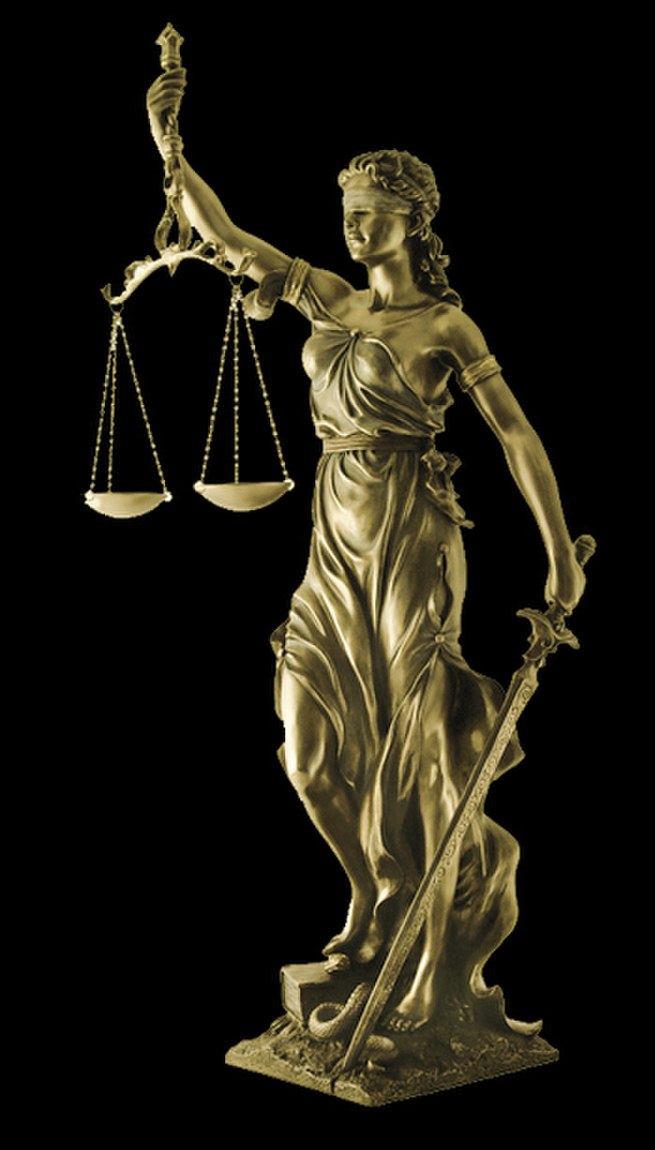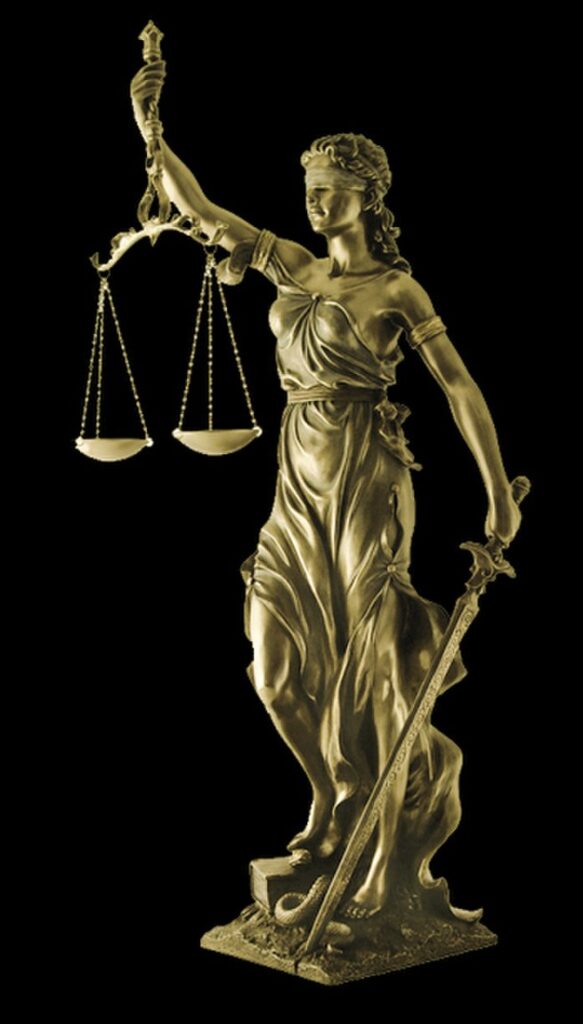
Main Difference
The main difference between Law and Jurisprudence is that the Law is a system of rules and guidelines, generally backed by governmental authority and Jurisprudence is a theoretical study of law, by philosophers and social scientists.
-
Law
Law is a system of rules that are created and enforced through social or governmental institutions to regulate behavior. Law is a system that regulates and ensures that individuals or a community adhere to the will of the state. State-enforced laws can be made by a collective legislature or by a single legislator, resulting in statutes, by the executive through decrees and regulations, or established by judges through precedent, normally in common law jurisdictions. Private individuals can create legally binding contracts, including arbitration agreements that may elect to accept alternative arbitration to the normal court process. The formation of laws themselves may be influenced by a constitution, written or tacit, and the rights encoded therein. The law shapes politics, economics, history and society in various ways and serves as a mediator of relations between people.
A general distinction can be made between (a) civil law jurisdictions, in which a legislature or other central body codifies and consolidates their laws, and (b) common law systems, where judge-made precedent is accepted as binding law. Historically, religious laws played a significant role even in settling of secular matters, and is still used in some religious communities. Islamic Sharia law is the world’s most widely used religious law, and is used as the primary legal system in some countries, such as Iran and Saudi Arabia.
The adjudication of the law is generally divided into two main areas. Criminal law deals with conduct that is considered harmful to social order and in which the guilty party may be imprisoned or fined. Civil law (not to be confused with civil law jurisdictions above) deals with the resolution of lawsuits (disputes) between individuals or organizations.
Law provides a source of scholarly inquiry into legal history, philosophy, economic analysis and sociology. Law also raises important and complex issues concerning equality, fairness, and justice.
-
Jurisprudence
Jurisprudence or legal theory is the theoretical study of law, principally by philosophers but, from the twentieth century, also by social scientists. Scholars of jurisprudence, also known as jurists or legal theorists, hope to obtain a deeper understanding of legal reasoning, legal systems, legal institutions, and the role of law in society.
Modern jurisprudence began in the 18th century and was focused on the first principles of the natural law, civil law, and the law of nations. General jurisprudence can be divided into categories both by the type of question scholars seek to answer and by the theories of jurisprudence, or schools of thought, regarding how those questions are best answered. Contemporary philosophy of law, which deals with general jurisprudence, addresses problems internal to law and legal systems, and problems of law as a particular social institution as law relates to the larger political and social situation in which it exists.
This article distinguishes three distinct branches of thought in general jurisprudence. To begin with, ancient natural law, as a major branch and theory of jurisprudence, is the idea that there are rational objective limits to the power of legislative rulers. The foundations of law are accessible through reason and it is from these laws of nature that human-created laws gain whatever force they have. Secondly, ‘clarificatory’ or analytic jurisprudence rejects natural law’s fusing of what law is and what it ought to be. It espouses the use of a neutral point of view and descriptive language when referring to aspects of legal systems. It comprises different theories of jurisprudence. For example, legal positivism, holds that there is no necessary connection between law and morality and that the force of law comes from some basic social facts. And legal realism argues that the real world practice of law is what determines what law is; the law has the force that it does because of what legislators, lawyers and judges do with it. Thirdly, normative jurisprudence is concerned with “evaluative” theories of law. It deals with what the goal or purpose of law is, or what moral or political theories provide a foundation for the law. Besides the question “What is law?”, it tries to answer what the proper function of law was, or what sorts of acts should be subject to legal sanctions, and what sorts of punishment should be permitted.
-
Law (noun)
The body of binding rules and regulations, customs{{,}} and standards established in a community by its legislative and judicial authorities.
“the courts interpret the law; entrapment is against the law”
-
Law (noun)
The body of such rules that pertain to a particular topic.
“property law; commercial hunting and fishing law”
-
Law (noun)
A binding regulation or custom established in a community in this way.
“There is a law against importing wallabies.”
“A new law forbids driving on that road.”
“The court ruled that the executive order was not law and nullified it.”
-
Law (noun)
A rule, such as:
-
Law (noun)
Common law, as contrasted with equity.
-
Law (noun)
Any rule that must or should be obeyed, concerning behaviours and their consequences. mores.}}
“”Do unto others as you wish them to do unto you” is a good law to follow.”
“the law of self-preservation”
-
Law (noun)
A rule or principle regarding the construction of language or art.
“the laws of playwriting and poetry”
-
Law (noun)
A statement (in physics, etc) of an (observed, established) order or sequence or relationship of phenomena which is invariable under certain conditions. theory.}}
“the laws of thermodynamics”
“Newton’s third law of motion states that to every action there is always an equal and opposite reaction. This is one of several laws derived from his general theory expounded in the Philosophiæ Naturalis Principia Mathematica.”
-
Law (noun)
A statement (of relation) that is true under specified conditions; a mathematical or logical rule.
“Mathematical laws can be proved purely through mathematics, without scientific experimentation.”
-
Law (noun)
Any statement of the relation of acts and conditions to their consequences.
“the law of scarcity; the law of supply and demand”
-
Law (noun)
The control and order brought about by the observance of such rules.
“They worked to maintain law and order.”
“It was a territory without law, marked by violence.”
-
Law (noun)
A person or group that act(s) with authority to uphold such rules and order (for example, one or more police officers).
“Here comes the law — run!”
-
Law (noun)
The profession that deals with such rules (as lawyers, judges, police officers, etc).
“He is studying for a career in law.”
“She has practiced law in New York for twenty years.”
-
Law (noun)
Jurisprudence, the field of knowledge which encompasses these rules.
“She went to university to study law.”
-
Law (noun)
Litigation, legal action (as a means of maintaining or restoring order, redressing wrongs, etc).
“They were quick to go to law.”
-
Law (noun)
An allowance of distance or time (a head start) given to a weaker (human or animal) competitor in a race, to make the race more fair.
-
Law (noun)
One of two metaphysical forces ruling the world in some fantasy settings, also called order, and opposed to chaos.
-
Law (noun)
An oath sworn before a court, especially disclaiming a debt. wager of law”, “wage one’s law”, “perform one’s law”, “lose one’s law”.}}
-
Law (noun)
A tumulus of stones.
-
Law (noun)
A hill.
-
Law (verb)
To work as a lawyer; to practice law.
-
Law (verb)
To prosecute or sue (someone), to litigate.
-
Law (verb)
To rule over (with a certain effect) by law; govern.
-
Law (verb)
To enforce the law.
-
Law (verb)
To subject to legal restrictions.
-
Law (interjection)
An exclamation of mild surprise; lawks.
-
Jurisprudence (noun)
The philosophy, science, and study of law

